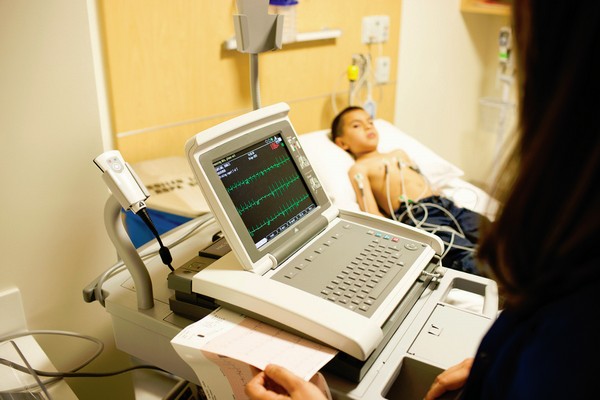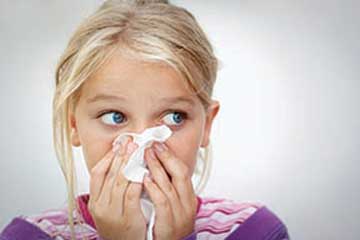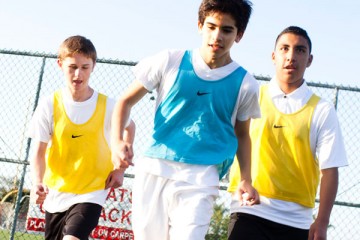CUTTING-EDGE CONGENITAL CARE
“In the newborn population, there are many [heart] conditions that may need surgery. One of the things to remember is that these types of surgery that are being done in the newborn period are relatively new, at least in the past 10 to 20 years,” says Dr. Joanne Starr. “Because of the technology, now we’re able to perform complex surgeries.”
BLUE IS FOR BLOOD VESSEL
“When a baby is born with what’s called transposition of the great vessels, the two major arteries that come out of the heart are switched around,” says Dr. Starr. “The artery that’s supposed to go to the body is going to the lungs and the one that’s supposed to go to the lungs is going to the body. So the blood is mixed and the patient is blue, and that requires surgery in the newborn period.”
WHAT IS CHD?
“Congenital heart disease is a defect that forms while the baby is in the womb and the child is born with it, as opposed to an adult, who has coronary artery disease that’s acquired,” says Dr. Starr. “We usually separate out the disease into two categories: those who have enough blood flow to the lungs and those that do not,” says Dr. Starr.
SURGERY: WHAT PARENTS NEED TO KNOW
Before, during and after your child’s heart surgery, CHOC’s specialized team of doctors and nurses prepare parents for what to expect, including what their child will look like. Many parents wonder if their child will be like other kids after surgery. “Very frequently the answer is yes,” says Dr. Starr. “They may have special needs, but if you go to a playground you won’t know the difference between a child that’s had heart disease and a child that hasn’t,” she says.
FAST FACTS
- The number of congenital heart disease cases that CHOC handles yearly: 200 – 300
- Number of hours heart surgery can last: 3 to 4 hours
- Number of beds in CHOC’s Cardiovascular Intensive Care Unit: 12



















